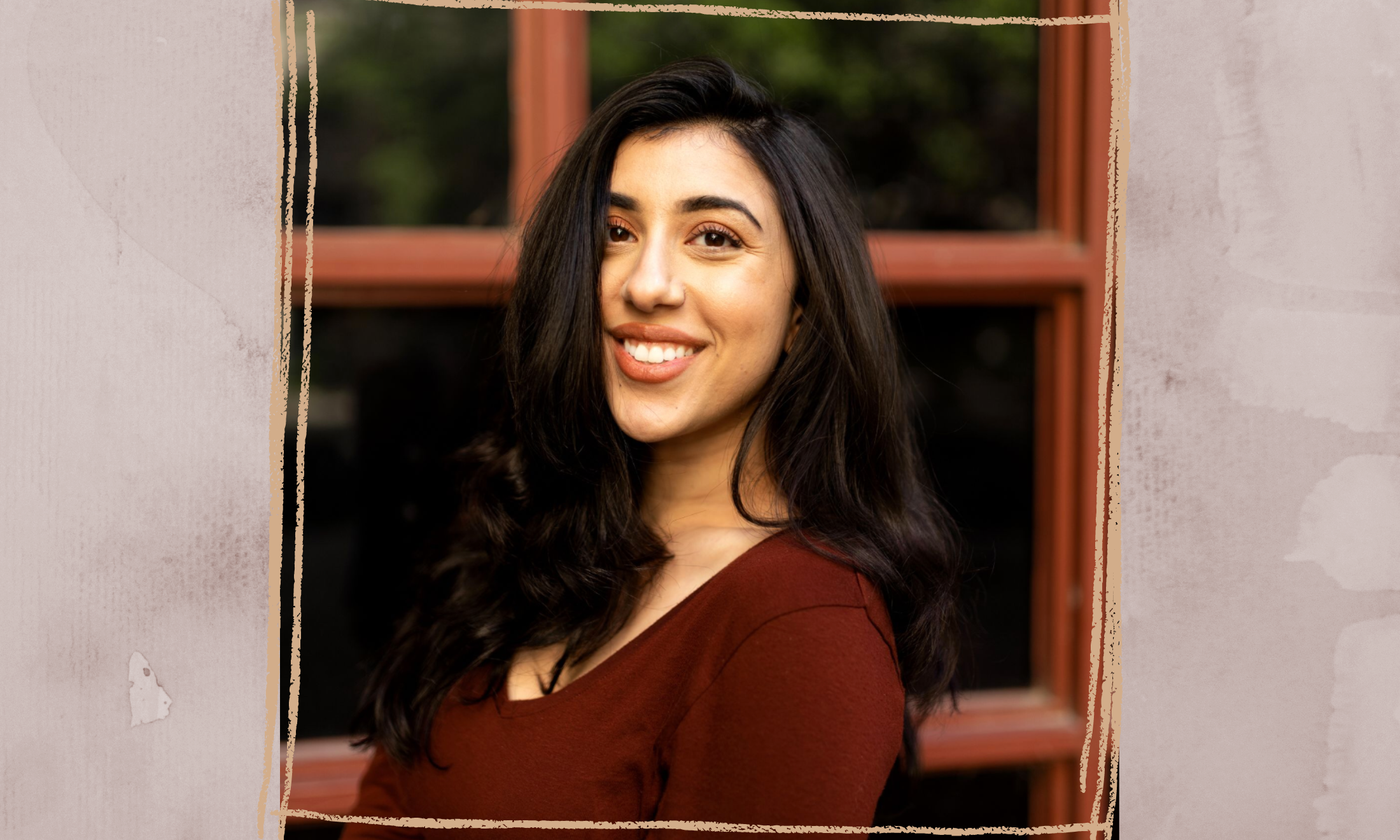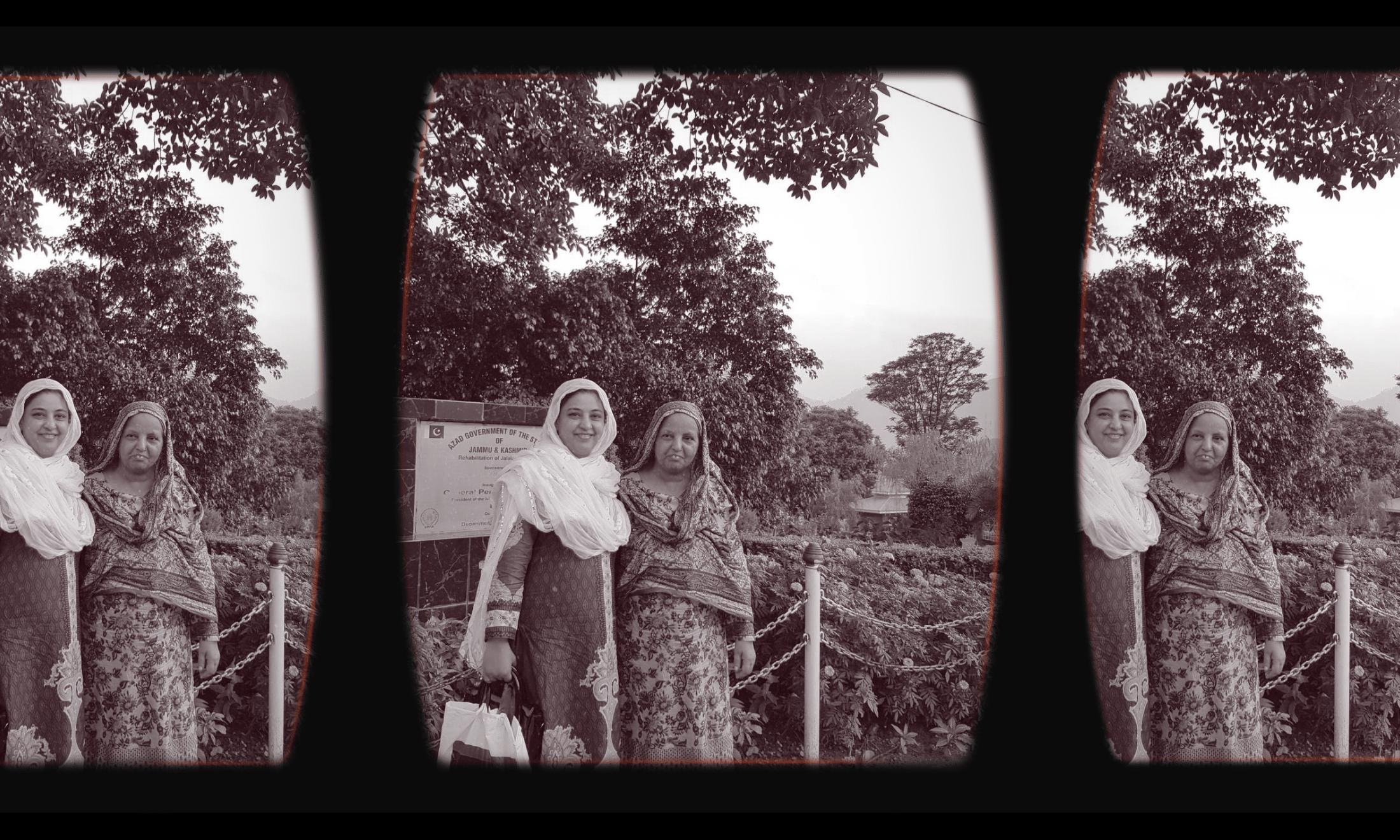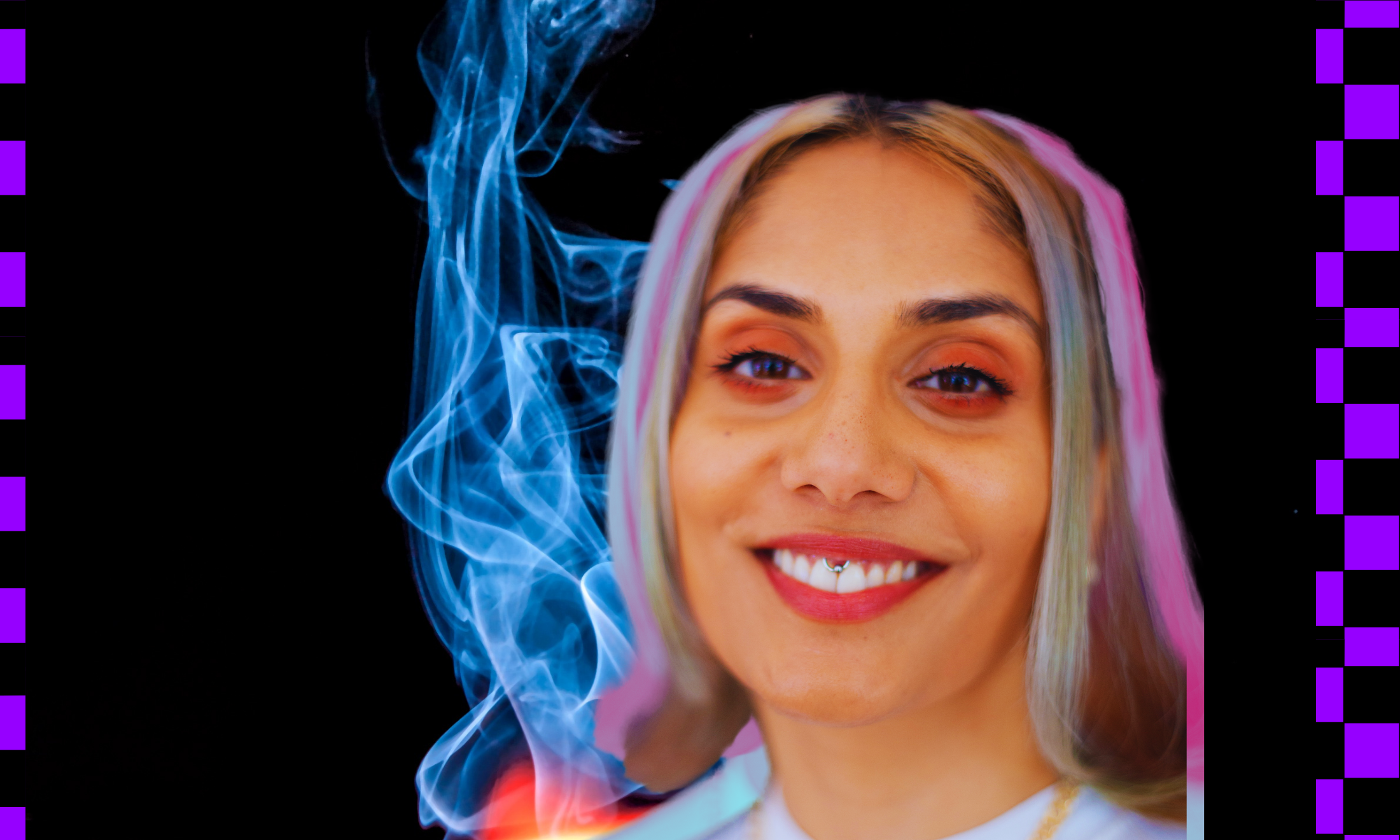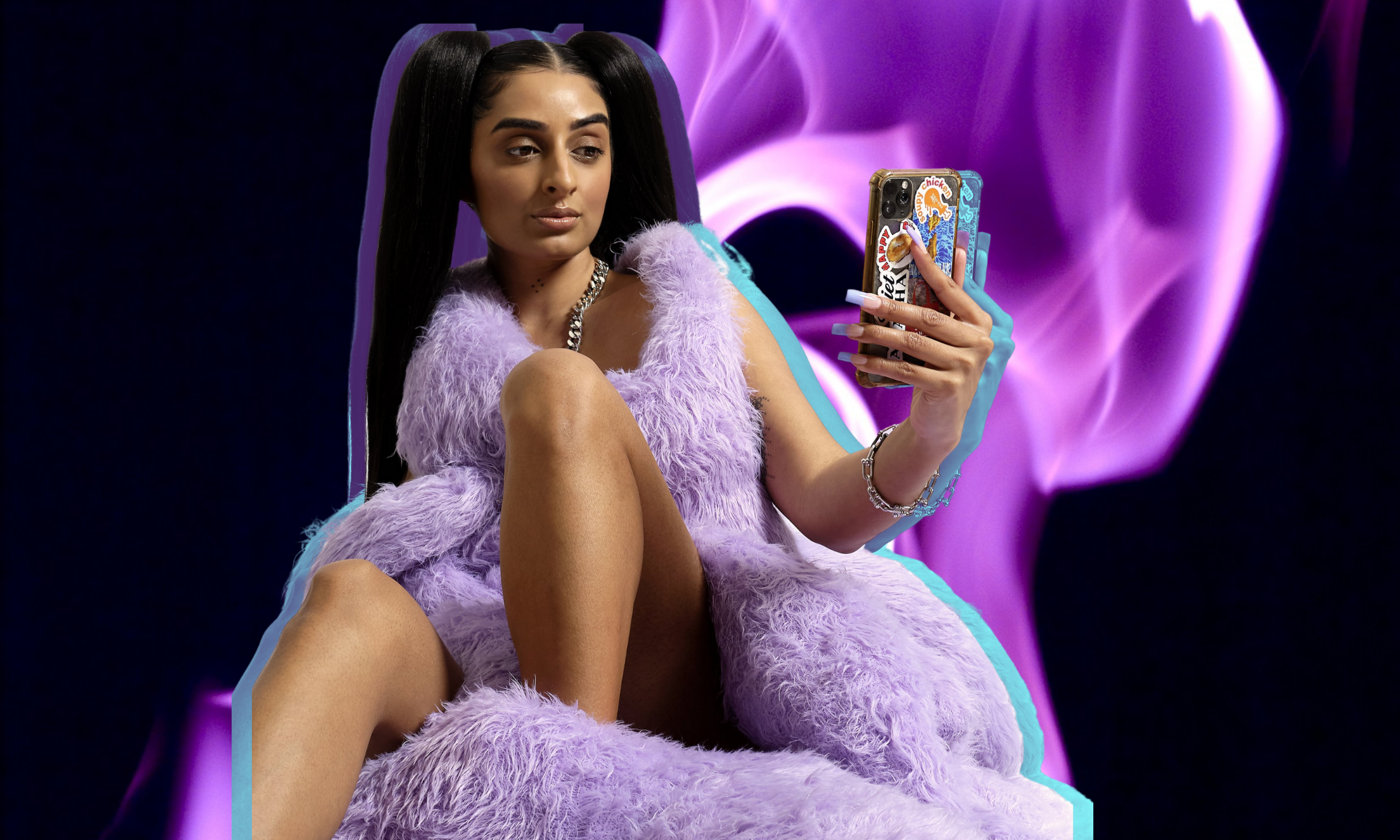Dialled In was more than a South Asian festival – it was history and home
At a new London festival celebrating the breadth of South Asian creativity, a generation found community they’d been waiting for and pulled up gunfingers together (while Skrillex was there eating jalebis, for some reason).
Tara Joshi
15 Sep 2021
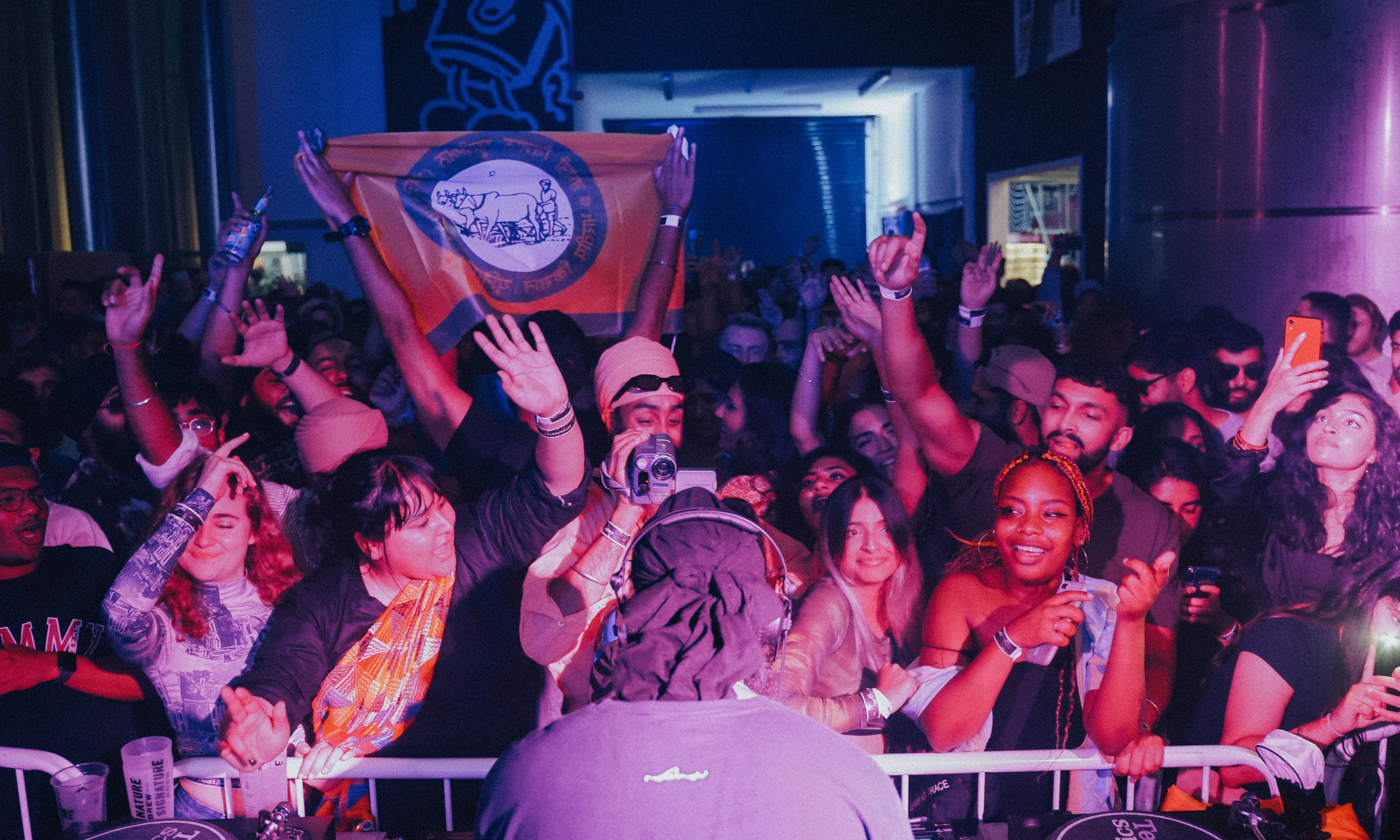
Sunny Formats | Yung Singh at Dialled In
I am holding hands with a mate I haven’t seen since February 2020. We’re in a crowd in north-east London, inside a brewery that’s doubling up as a concert venue. It smells like incense and sweat, there’s a flutter of tabla sounds as the DJ starts and the murmuring, gassed up buzz of all the people pushing through – many in turbans, almost all of them Brown – fervently trying to get to the front.
My friend pulls a turquoise dupatta over their hair and softly starts singing a Qawwali over the beat. His head and hands move joyfully in sync with the music, and even though I don’t know or fully understand the song I can feel it in my bones. This is the only way I can capture the opening moments of DJ and producer Yung Singh’s set at Dialled In festival, but also, I guess, the day as a whole: special, thrilling, affirming, abundant, fire. It was all a movie.
“Someone literally did a backflip in the middle of Yung Singh’s set, in the thick of one of the most hectic crowds of the day”
Dialled In is a new festival celebrating the vastness of South Asian creativity – but it was so much more than a festival. Organised by UK-based South Asian groups No ID, Chalo and Daytimers (and specifically among them: Ahad Elley, Ahsan-Elahi Shujaat, Dhruva Balram, Nigel Mphisa, Provhat Rahman), the inaugural event took place on Saturday 11 September – though over the coming months the festival also has lined up programming of roundtables, mentoring and more. After 18 months of debilitating pandemic anxiety and lockdowns, I ended up staying there on Saturday dancing, vibing and talking nonsense for close to 14 hours.
I met people I have only known from the internet, embracing them and throwing up gunfingers together as if we were old friends, or family. I had missed the spontaneity of random connections and conversations; the chaos of chats about Zee TV, love lives, even a deeply surreal 20 minutes in the smoking area debating Donda with Skrillex (who was there eating jalebis for some reason, and then did a rousing B2B with Ahadadream at the afterparty).
There was something gratifying in the way so many of the beautiful Brown faces there could sing along to Timbaland, Missy Elliott and Truth Hurts, while also singing the Hindi samples they’d used. The excellent DJs (including many many gal-dem faves and fam – Manuka Honey, Aisha Mirza, Pxssy Palace, Daytimers, to name a few) were all pulling from a vast array of histories and bangers: everything from Sean Paul to Jai Paul, Mariah Carey, M.I.A., T2, Cornershop. Footwork, UKG and jungle met dhol, tabla and occasional flourishes of sitar (it’s worth noting, of course, that much of British South Asian music nods to Black music culture, an invoking of the solidarity and kinship among many communities).
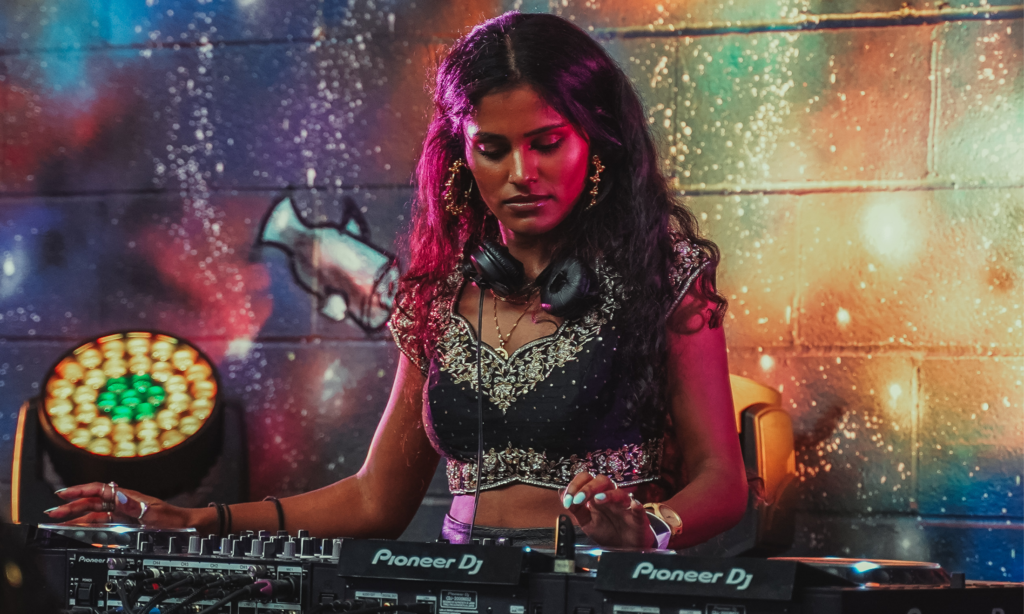
Secretive DJ and producer SBTRKT transpires to be of South Asian descent (Kenyan-Goan and Scottish), and on the day he asked if he might do a little surprise set at the after-party – obviously this went off, with people (read: me) screaming along to ‘Wildfire’, horribly and deliciously out of tune. Then there were the live sets, all a further reminder that there is no one way to be South Asian. Nadia Javed’s pop-punk, the glowing vibe of Shivum Sharma’s performance over King Monday’s dreamy guitar, the hefty bars of Surya Sen and Nayana IZ (the latter of whom brought out her mum), the transcendental feeling of Sarathy Korwar and Auntie Flo as they debuted their collaboration replete with tabla, the humming drone of a shruti box and a gong.
Each time someone raised a Kisaan flag (for the ongoing farmers’ protests, which we continue to stand with), the crowd would cheer, somehow even more live and zealous. There was a warm kineticism, openness and positivity everywhere, and the power and possibility of community and solidarity felt so tangible and beautiful. Someone literally did a backflip in the middle of Yung Singh’s set, in the thick of one of the most hectic crowds of the day – that is energy! It all felt like history.
In its first iteration at least, Dialled In was a space within which South Asians could exist and express ourselves and celebrate each other in all our vastness, while trying to break through the divisions and issues that colonialism and ‘tradition’ have upheld. Casteism, Islamophobia, misogyny, transphobia, anti-blackness, classism and homophobia are obviously not erased just because we had a nice dance, and there is work and action to be done. But we are hopefully moving in the right direction in acknowledging these things, talking about them, and trying to build an umbrella under which everyone feels safe and welcome while giving our time and resources to supporting those in need of it.
There was a wall in one of the venues that mapped out a history of British South Asian music, and I welled up. What is happening now is rooted in what came before: most notably the magic daytime raves of the 1980s and 90s, secret LGBTQIA+ house parties, and the Asian Underground, a period during which British South Asian faces like Talvin Singh and Nitin Sawhney were on the front of the biggest music and culture magazines in the country. It’s an oversimplification to pretend racism didn’t exist through all of that time, but after 9/11 happened, Islamophobia and racism were rife, and undoubtedly impacted the way we were perceived by the white media and music industry, but also by each other.
Obviously, there was still cultural output from British Brown people in the early 2000s though, and I would argue there were too many “where are we?” conversations happening in the 2010s (something I was definitely part of), waiting for recognition from whiteness rather than just celebrating ourselves. Many of us were uncritically satisfied by individualised ‘representation’ (something Anupa Mistry has unpacked brilliantly before) rather than spaces bringing all of us with our wealth of experiences together. But the past few years in UK dance music spaces have seen that changing, from nights like No ID and Cousins, compilations like Chalo, through to Daytimers’ fundraising livestreams and their seminal Boiler Room and, now, Dialled In.
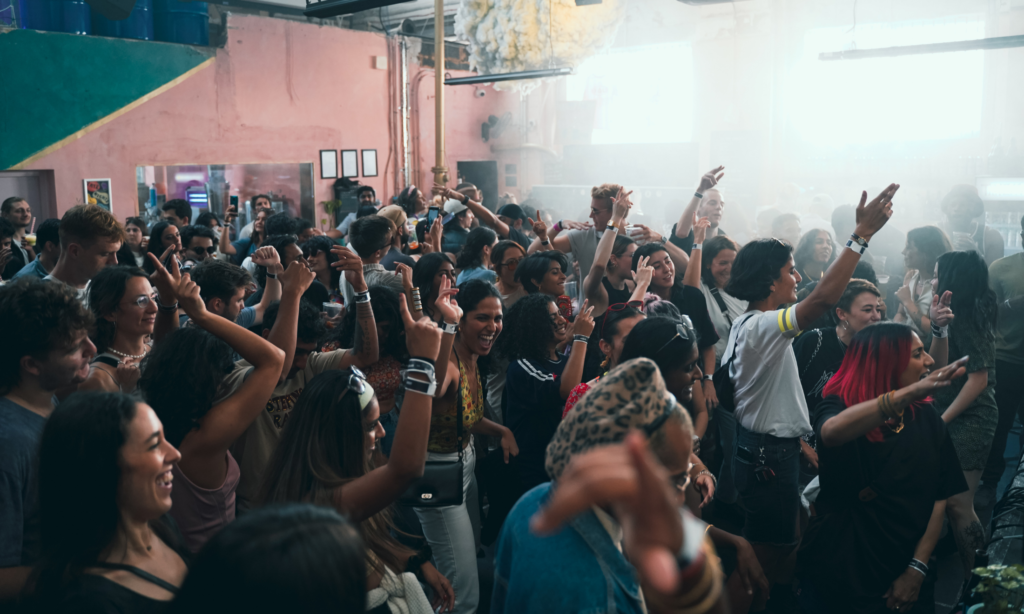
Sure, I am happy Mixmag did a South Asian September issue, but I’m much more interested in how we are documenting ourselves and finding each other. How we continue to create community, care and collective action for each other – here and in South Asia itself – rather than worrying about who from the white establishment is paying attention to stuff like Dialled In. I am grateful for a new generation taking the baton, learning from history and reminding us and everyone else that we are not simply one thing.
“South Asians in the UK have always built our own spaces, and our cultural history is pretty much infinite”
And I’ve been thinking a lot lately about something Yung Singh wrote on Instagram a while ago: “I find it amazing that a centuries old melody still has the power to evoke such a strong reaction in this sort of context. I hope this serves as a reminder that we are the descendants of millennia old cultures of art and music of the kind the west has never seen or could comprehend and likely will never be surpassed […] we are proud of who we are. for too long we’ve been frozen out and pigeonholed by narratives imposed on us – no more.”
It got me thinking about parties my parents had when I was a kid that I had forgotten about. In our tiny Isle of Wight South Asian community, they’d invite our local immigrant family into our living room, an uncle on the tanpura, another on harmonium, a cousin tapping on the tabla and my Ma singing along, everyone with their eyes closed murmuring “wah!”. I did not fully understand the music then but still could feel it in my bones.
South Asians in the UK have always built our own spaces, and our cultural history is pretty much infinite. Music is our ancestry, and it lives in our blood and our breathing and our being. Dialled In is a space that encompasses that history and heritage and politics, while channelling what it is to be British, too. My heart feels so full, my mind feels electric – looking back, after the past 18 months especially, it all seems like some gold-tinted dream. It’s so corny to talk about that immigrant, diaspora kid feeling of what ‘home’ even is, but somewhere between those breakbeats and ‘apnas’ was a sense of belonging. Long may it continue.

